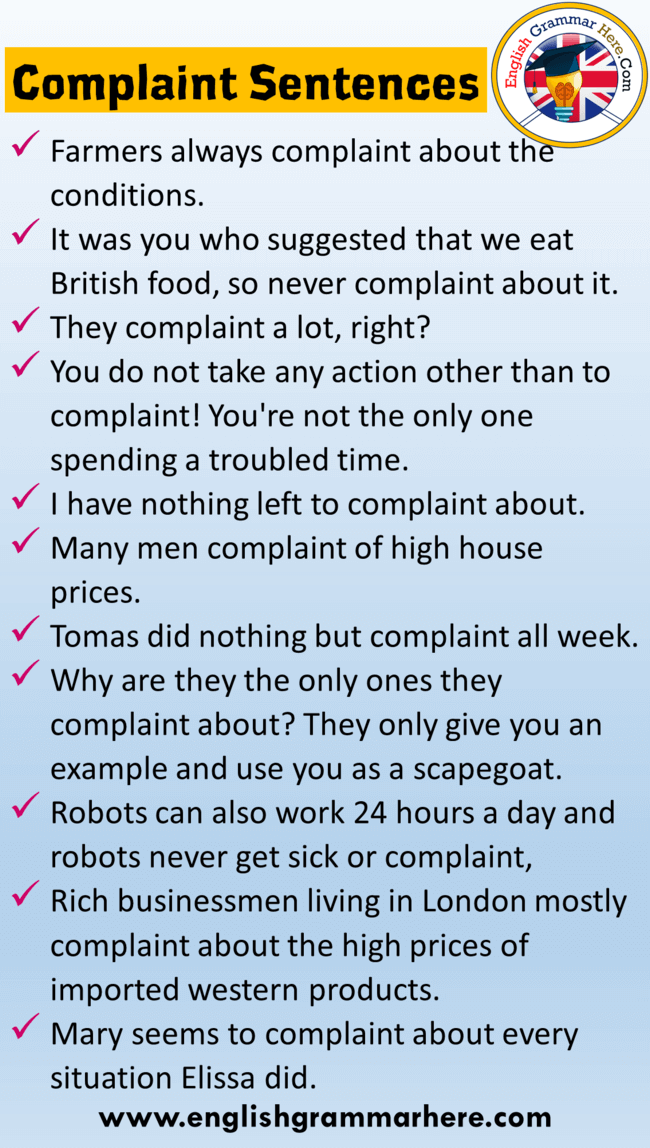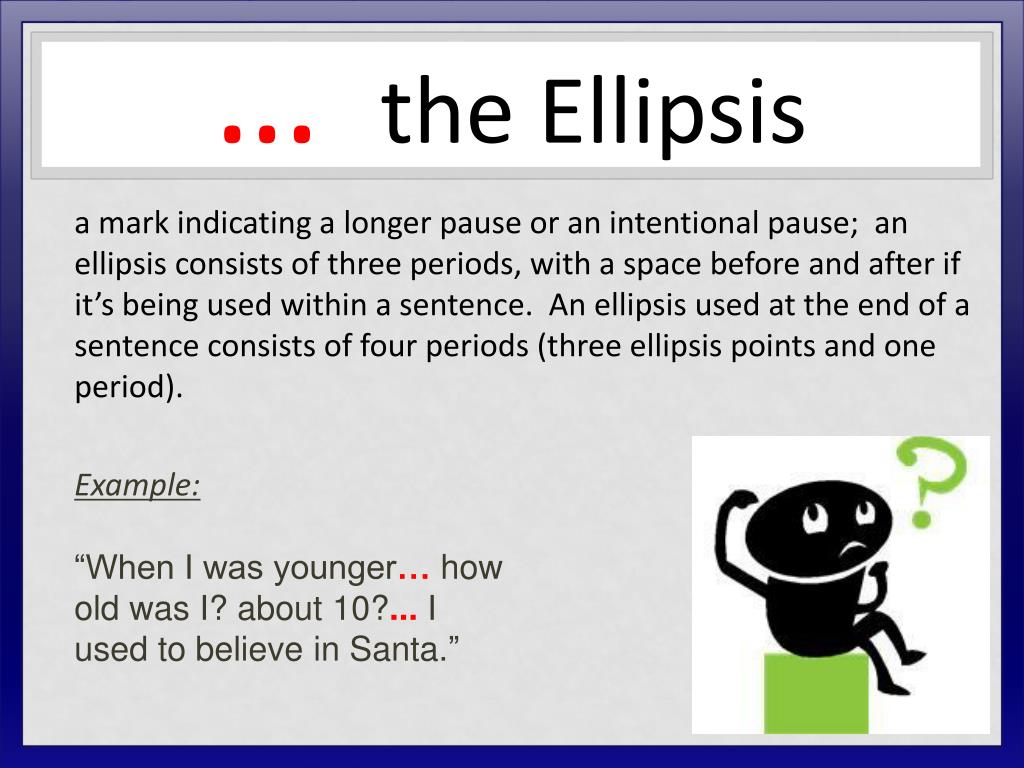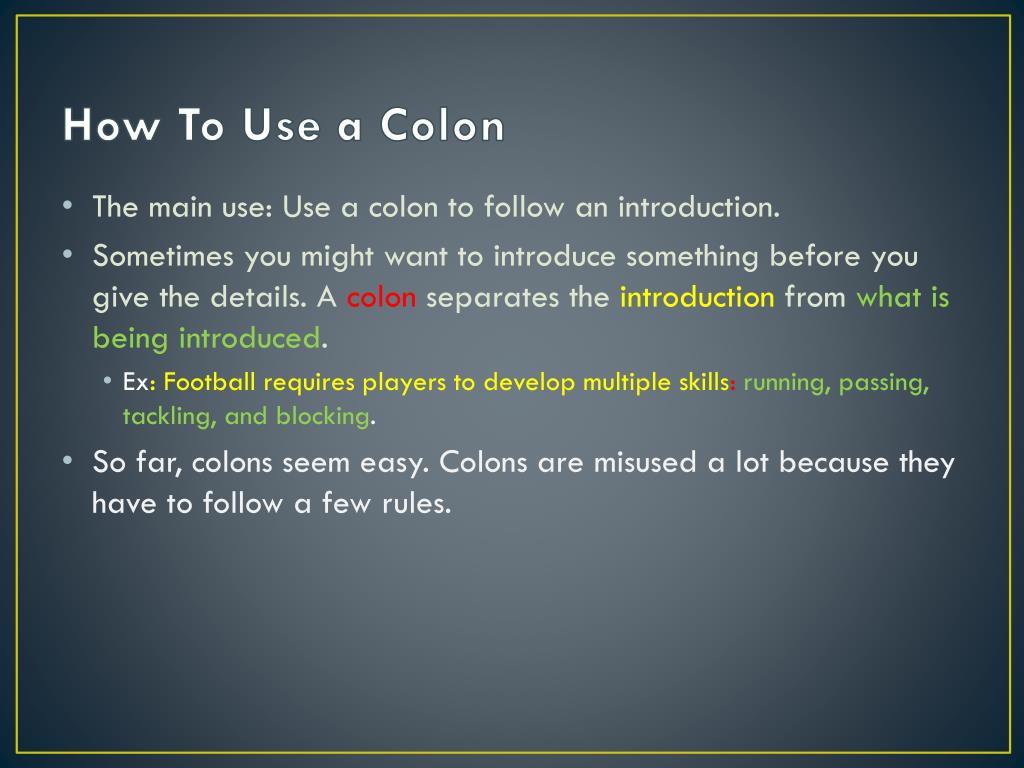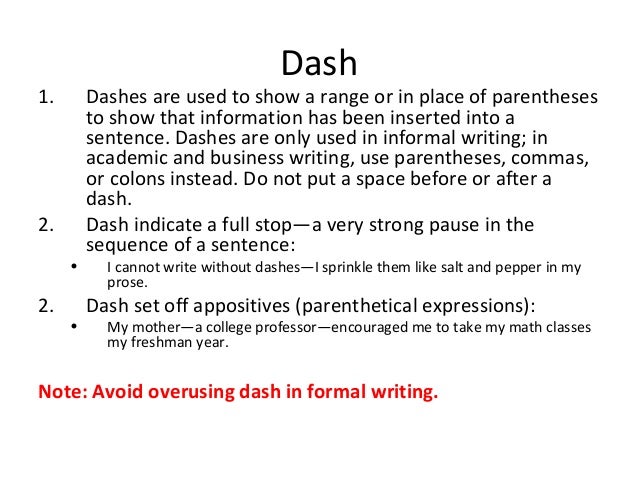The em dash is created by typing two hyphens on a computer keyboard. Em dashes can be used to replace pairs of commas and parentheses. They can also be used as a substitute for colons, and em dashes can be used to show interrupted thoughts or dialogue. Em dashes add emphasis to the words they enclose, but this special punctuation mark should be used sparingly. There are 14 punctuation marks that are commonly used in English grammar. They are the period, question mark, exclamation point, comma, semicolon, colon, dash, hyphen, parentheses, brackets, braces, apostrophe, quotation marks, and ellipsis.
Following their correct usage will make your writing easier to read and more appealing. Now that you're familiar with hyphens, em dashes and en dashes, consider brushing up on other commonly used punctuation marks in English grammar. You can also explore how to use other misunderstood punctuations such as the colon and semicolon.
To dig a little deeper, learn the basic punctuation rules that every writer must follow. Ask yourself if yourparenthetical remarkwill add nuance and insight to your writing or just confuse the reader. If it's the latter, return the dashes to your punctuation tool bag and use a comma, colon, or semicolon instead, or revise the sentence so that you can omit the dreaded dash. When people think of punctuation marks, it is usually the handy comma, the imperious colon, or the overly excited exclamation mark that comes to mind.
The stodgy semicolon and sinuous question mark might get thrown into the mix, but rarely—if ever—will somebody mention a punctuation mark that, while omnipresent, often goes unnoticed. This is surprising considering that this punctuation mark is highly versatile and a favorite of skilled writers. It can add a spice—or a dash, if you will—to a sentence by adding emphasis to certain words and phrases.
When you know how to use a dash correctly, it can be a handy piece of punctuation. The problem is that sometimes it is difficult to know exactly when to use an em dash (—) or an en dash (–). Generally speaking, an em dash is used to create emphasis or to establish an informal tone.
An en dash is common when indicating a range of numbers or creating compound adjectives. Just remember a few basic rules and your writing will be dashing along in no time. The em dash can function like a comma, a colon, or parenthesis.
Like commas and parentheses, em dashes set off extra information, such as examples, explanatory or descriptive phrases, or supplemental facts. Like a colon, an em dash introduces a clause that explains or expands upon something that precedes it. Dash (-) is one of those punctuation marks which create a dramatic impact in the written language.
Though not used as frequently as other punctuation marks, such as commas, full stops, question marks, semi colons, inverted commas, dash have their own value in the language. One should be careful about the places where dash could be inserted. Using it indiscriminately and inappropriately should be avoided. The em-dash can be used to replace parentheses, colons, and commas.
Generally, using the em-dash makes the writing style more informal—as if you were writing to an old friend. Create an em dash by typing two hyphens without spaces between the hyphens and no spaces before or after the hyphens. Em-dashes are not generally used in formal documents. Some circumstances, such as indicating date or number ranges, will always call for en dashes. Others, such as offsetting information or creating a pause, don't always need an em dash.
Use dashes to create greater emphasis or to foster an informal tone in your writing. Don't rely on them for situations when another form of punctuation will do. Essentially, semicolons, colons, and dashes offer you different ways to join your ideas together, and you can use them to adjust how you want your sentences to sound. A comma between two independent clauses creates a run-on sentence that doesn't give enough definition between your ideas, while a period between them sometimes distances them too much. But remember that when deciding whether to use a period or a semi-colon, a colon or a fash, it is more a stylistic/rhetorical choice than a choice of right or wrong.
Colons, semicolons, and dashes are perhaps the three most misunderstood punctuation marks in the English language. Each of these are used to indicate a pause or break in a sentence. In some instances, these punctuation marks are not interchangeable. In other instances, it's up to the discretion of the writer. Let's take a deep dive into each of these pause-makers and see which one will suit your next line of prose.
Each of these is used to indicate a pause or break in a sentence. A good rule is to use parentheses, commas, semicolons, and colons instead of em dashes in formal writing. Like commas, parentheses can often be replaced by em dashes in a sentence if we want to draw more attention to the information within them.
Just be aware that em dashes are considered much less formal than parentheses, so they should be avoided when writing professional or academic material. In addition, em dashes can be used instead of colons and semicolons in less formal writing, and they can also be used to represent missing or omitted text and to indicate a break in dialogue. The em dash is an incredibly versatile punctuation mark that can be used instead of parentheses, commas, colons, or quotation marks in a sentence. I am talking about the em-dash, which looks like two hyphens connected into one long line. Depending on the sentence, the em-dash can have a similar function to parentheses, colons, commas, and even semicolons. But an em-dash is not the same as these other marks; it brings a different flavor to the sentence and adds a special emphasis that wasn't there before.
Again, the em-dash can be used to replace parentheses, colons, and commas. It may be particularly useful when you need to set off information that already contains some sort of punctuation, like commas. Em-dashes can be used to suggest an afterthought, to set off extra information within a sentence, to signal an abrupt shift, and to emphasize a thought or sentence. In less formal writing, we can often substitute an em dash for a colon if we want to quickly indicate or emphasize a list or clarifying information.
Note that some style guides do not recommend using an en dash when a range is introduced by a word like from or between. In very formal or professional writing, consult your school's or employer's style guide; otherwise, it is largely a matter of personal preference. The em dash (—) sets off a word or clause and adds emphasis. Or, it can signal an interruption (see our article on interrupting sentences for more on that!) or amplification ("expanding") of an idea. It's also the longest of the dashes (e.g., hyphen, en dash). Yes, we're still mainly talking about em dashes and not semicolons; apologies for any confusion.
There's obviously a lot going on in this sentence, of which the humble em dashes are only a small part. But what I like is how all the inner punctuation—semicolons, parentheses, dashes—is used to build new asides within asides, with the marks varying for texture. It's also the longest of the dashes (e.g., hyphen, en dash).
Em dashes can be used in pairs to replace commas when writing a parenthetical or interruptive phrase. The dashes have a slightly more emphatic feel, making the reader focus on this information that is set inside the special marks. "Usage of Full stop" Punctuation forms the backbone of any language. Without proper punctuation marks, it will be difficult to make sense of language, whether in written or spoken form. Commas, semi-colons, question marks and full stops are some of the commonly used punctuation marks. A dash is a horizontal line that shows a pause or break in meaning, or that represents missing words or letters.
Note that dashes are rather informal and should be used carefully in writing. Dashes are often used informally instead of commas, colons and brackets. A dash may or may not have a space on either side of it.
Em dashes save the day when other punctuation would be awkward. For instance, em dashes can replace parentheses at the end of a sentence or when multiple commas appear in a parenthetical phrase. It is quite common to see writers use hyphens instead of em dashes, due to the speed and ease with which a hyphen can typed.
However, this should be avoided, as having hyphens performing too many functions in a sentence can lead to some very confusing reading. The dash (–) is used to set off additional material within a sentence, often in order to emphasize it, to set off appositives that contain commas, or to indicate missing words. Sometimes confused with the hyphen, a dash comes between words as a form of division, whereas a hyphen generally joins words or parts of words to indicate a connection. The hyphen, double hyphen, and minus sign have been encroaching on the territory of the em dash with increasing frequency in recent years. Colons, semicolons, and dashes are three powerful punctuation marks with a lot of misunderstanding behind them.
They're often used interchangeably when they shouldn't be. Writing is all about clarity to help readers understand your business and connect to increase sales, engage readers in articles, or create enticing fiction. Getting grammar details right helps you communicate effectively. From connecting words and concepts to setting off information, correct usage of hyphens and dashes keeps readers focused on your message. Dashes work to bring attention to a phrase or indicate a phrase as additional information. Like other punctuation marks, dashes are indications of how a reader may think about information.
Clearly, a dash, in most cases, is a useful tool to change the thought or introduce an afterthought in the sentence. Experienced writers know the difference between a dash and a comma, colon and other punctuation marks and use them for the intended impact. Think of the dash as indicating an interruption you want to call attention to. Other punctuation marks—commas and parentheses—serve similar purposes. Commas are more neutral, and parentheses usually enclose information that is extra and incidental.
There are numerous examples of when it would be appropriate to use an em dash in writing. The primary purpose of this kind of dash is to call special attention to a group of words within a statement or question. This type of punctuation could signal that a certain phrase is particularly important or deserving of extra emphasis. The em dash is the largest of the three kinds of dashes.
An em dash is used to indicate a break in a sentence or question. It is used in the same manner as a parenthetical expression. Rather than placing parentheses around a phrase within a statement, writers can opt to surround the phrase with an em dash on either end. The name em indicates that the dash is roughly the size of the letter "m." Learn how and when to use dashes with examples and ESL worksheets. The dash is one of the most important punctuation marksin the English language.
Of a sentence, em dashes can sometimes be useful to add forceful emphasis to the parenthetical statement. However, we must be careful not to use em dashes when they might make the sentence awkward or confusing to read. One reason hyphens and dashes are confused is that only the hyphen has a designated key on the typical keyboard, but there is a way to create them all. The hyphen is simply the minus sign on your keyboard. Creating a dash is slightly more complicated and varies between word processing programs.
For some, tapping the minus sign twice and hitting the space bar is enough, while others require a combination of the shift, control and option keys. A quick online search will help you find the right solution for your writing tools. Here again, an em dash can substitute for a punctuation mark used to separate the parts of a sentence. Like a colon, the semicolon can be used to keep two main clauses apart. A set of em dashes can enclose information that would otherwise be set off by commas. If you were wondering whether you could have used commas in place of parentheses or em-dashes in the examples above, you can.
In terms of adding emphasis to a phrase, the comma falls somewhere between the parentheses and the em-dash. Another thing to keep in mind is that many sentences already have commas so using them to set off a descriptive phrase can make things a little crowded with commas. Let's revisit our "Dennis road trip" sentence to use as an example.
Colons don't have to introduce a list or a quotation. Colons can separate two independent clauses when they are directly related, or the emphasis needs to be placed on the second clause. An em dash is created in most word processing programs when the user types two hyphens. The hyphen keys are typically located next to the zero key on a computer keyboard.
Em dashes are punctuation marks that are useful when a writer wants to emphasize a particular phrase within a sentence. They can also be used to indicate an interruption in thought or conversation. When writing a formal letter or another kind of document, you should always try to avoid informal punctuation symbols. Dashes are one example; exclamation marks are another. Dashes can be replaced by several other punctuations including commas, colons and brackets.
Dashes can be used to add parenthetical statements or comments in much the same way as you would use brackets. In formal writing you should use the bracket rather than the dash as a dash is considered less formal. The dash (—), also called the em dash, is the long horizontal bar, much longer than a hyphen. Few keyboards have a dash, but a word processor can usually produce one in one way or another. If your keyboard can't produce a dash, you will have to resort to a hyphen as a stand-in. In British usage, we use only a single hyphen to represent a dash - like this.

























No comments:
Post a Comment
Note: Only a member of this blog may post a comment.